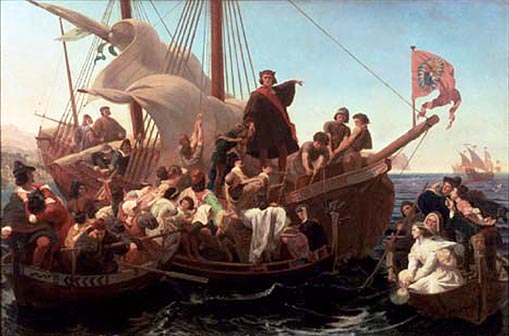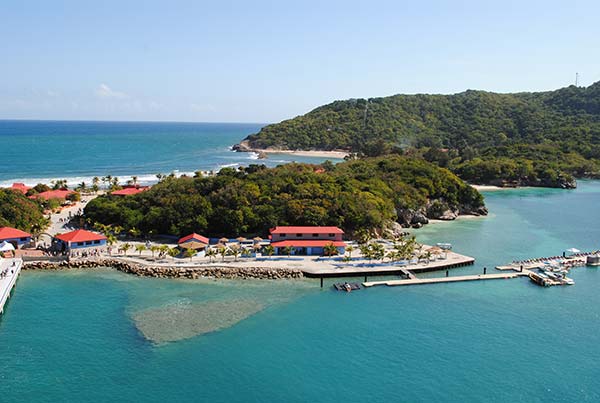Haitian Music History
To start deciphering Haiti’s musical background, one must first understand a bit about the country’s beginnings. Haiti has a long history of colonization, beginning with the Spanish in Hispaniola, a great Caribbean island now split between Haiti and Dominican Republic. Christopher Columbus, the (in)famous Italian explorer, settled La Navidad in 1492 from the remains of his then-shipwrecked Spanish flagship, the Santa Maria. He left and returned a year later only to find the settlement razed and every one of his thirty-nine original shipmates killed. Following, different Spanish conquistadors set up new settlements throughout Hispaniola throughout the early 1500s.

During these spans of European inhabitance, La Hispaniola’s natives suffered from foreign disease to which they had no immunity and died off in catastrophic numbers. Those surviving were able to relocate and persist elsewhere. Spain lost interest in Hispaniola during the 1520s as Mexican and South American gold and silver mines were uncovered. Without European intervention, the then-mixed native population of Spanish-Haitian Tainos was able to grow slowly.
France’s Conquest and Occupation
The French founded their first island settlement on the island of Tortuga in 1625. Seeing a rich opportunity for profit, English and Dutch pirates quickly followed suit. Including the Spanish already present, all four of these nations poached one another’s ships. In 1660, a Frenchman named Jeremie Deschamps overthrew a vital English township, declaring French territory and beginning the most unbroken reign throughout Haiti’s history.

After over 100 years of expansion and the mass enslavement of natives for the purpose of sugar plantation upkeep, slaves in the northern region of the French colony Saint-Domingue kick started the Haitian Revolution to fight for their freedoms in 1791. The Revolution lasted 13 years. Near the end, with the French toppled at the battle of Battle of Vertières and Napoleon Bonaparte ousted, Haiti was finally freed from French control in 1804. France did not officially recognize this independent state until 1825, (and only after a 90 million gold franc payment for which the Haitian government took out high interest loans to pay).
A Free Haiti (and Beyond!)
Though the Frenchmen were booted from the now-free country, French culture remained integral, particularly among the higher societal classes. French ballads were shown in ornate halls while performances with their roots in African dance and song were enjoyed amongst the lower societal classes. This disparity in wealth and taste was palpable, and did not easily blend. Over time, though, the culturally-specific art forms began to blend, and the beautiful Haitian Creole ways of expression we see today rose from the intermingling of individuals.

This rocky background was the dark past from which music danced. With additional outside influences from the neighboring Spanish Dominican Republican and other Caribbean powers, different and unique genres began to play their ways into the ears of aristocrats and street-sweepers alike. Haitian music history is unlike any other in the world, and, though it is often gruesome, should be celebrated.

This was very interesting.